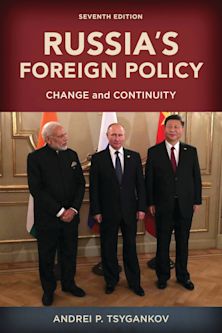Strategies of Survival
North Korean Foreign Policy under Kim Jong-un
Strategies of Survival
North Korean Foreign Policy under Kim Jong-un
Description
The North Korean nuclear issue has been one of the most significant challenges to international peace and security in the 21st century. The failure to peacefully resolve the issue could trigger regional instability or even nuclear warfare in the worst scenario. Since its first successful nuclear test in 2006, North Korea has repeatedly defied the international community regarding its nuclear program despite the effort and resources that the international community has focused on the issue. Many consider Pyongyang decision-makers irrational or simply crazy. Nonetheless, since early 2018, North Korea has drastically changed its foreign policy and actively pursued rapprochement.
How to understand DPRK foreign policy, its past, and future? How will the nuclear issue develop under a possibly new paradigm of North Korean foreign policy? This book seeks to provide readers with a comprehensive analysis of North Korean foreign relations. As the existing analysis and literature on North Korean foreign relations focus primarily on China, the United States, South Korea, and Japan, but such analysis ignores the DPRK's relations with many other states and organizations that not only interact with North Korea nevertheless also play important roles in its strategy of surviving in the international systems.
Table of Contents
Chapter 2. Pursuing Interdependence and Independence: North Korea's Foreign Policy on China: Weiqi Zhang
Chapter 3. North Korean Policy on South Korea: Development Strategy and Regime Competition: Sukhoon Hong
Chapter 4. Presence of Malice: Japan and North Korea's Non-Relations: Anand Rao
Chapter 5. Seeking Alternative Opportunities: North Korea-Russia Relations: Evengii Gamerman
Chapter 6. North Korea and Iran: Kim Jong-Un's Dilemma: Alon Levkowitz
Chapter 7. External Legitimacy in North Korean Survival Diplomacy: Global South and International Organizations: Roberto Dominguez
Product details

| Published | 24 Apr 2023 |
|---|---|
| Format | Ebook (Epub & Mobi) |
| Edition | 1st |
| Extent | 176 |
| ISBN | 9781666922325 |
| Imprint | Bloomsbury Academic |
| Illustrations | 5 b/w illustrations; 1 tables; |
| Series | Bloomsbury Studies on Korea's Place in International Relations |
| Publisher | Bloomsbury Publishing |
Reviews

ONLINE RESOURCES
Bloomsbury Collections
This book is available on Bloomsbury Collections where your library has access.


































